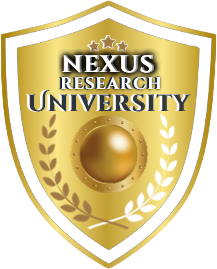Master in Theology and Leadership
Master of Theology and Leadership
Course Description:
The Master of Theology and Leadership program is designed to equip individuals with a deep understanding of theological principles and the practical skills necessary for effective leadership in diverse contexts. This interdisciplinary program integrates rigorous academic study in theology, biblical studies, and church history with the development of essential leadership competencies such as communication, conflict resolution, ethical decision-making, and organizational management.
Core Areas of Study:
Systematic Theology: Explore core doctrines of Christianity, including Trinitarian theology, Christology, pneumatology, soteriology, and ecclesiology.
Biblical Studies: Engage in in-depth study of the Old and New Testaments, including historical and literary criticism, theological interpretation, and application to contemporary issues.
Church History: Examine the historical development of Christian thought and practice, including major movements, figures, and theological debates.
Leadership Studies: Develop essential leadership skills, including:
Communication and Interpersonal Skills: Effective communication, public speaking, active listening, and cross-cultural communication.
Organizational Leadership: Principles of organizational behavior, team leadership, change management, and strategic planning.
Ethical Leadership: Ethical decision-making, integrity, social justice, and servant leadership.
Conflict Resolution and Mediation: Strategies for resolving conflict constructively, building bridges, and fostering reconciliation.
Ministry and Mission: Practical application of theological and leadership principles in various ministry contexts, including church planting, pastoral care, community development, and global missions.
Learning Outcomes:
Upon successful completion of the program, graduates will be able to:
Demonstrate a comprehensive understanding of theological doctrines and their historical development.
Analyze and interpret biblical texts critically and theologically.
Apply theological principles to contemporary issues and challenges.
Develop and implement effective leadership strategies in diverse contexts.
Communicate theological and leadership concepts clearly and persuasively.
Lead and manage teams effectively and ethically.
Resolve conflicts constructively and promote reconciliation.
Engage in ministry and mission effectively in a globalized world.
Career Paths:
Graduates of the Master of Theology and Leadership program may pursue careers in:
Church Leadership: Pastors, ministers, youth pastors, church administrators
Non-profit Organizations: Executive directors, program directors, development officers
Higher Education: Professors, instructors, academic administrators
Theological Education: Seminary faculty, seminary administrators
Cross-cultural Ministries: Missionaries, international development workers
Community Development: Community organizers, social workers, non-profit leaders
Note: This is a sample course description and may need to be adjusted based on the specific focus and requirements of the program.
Key Considerations:
Program Length: Specify the duration of the program (e.g., 2 years, 3 years).
Delivery Method: Indicate the mode of instruction (e.g., on-campus, online, blended).
Admission Requirements: Outline the academic and professional qualifications required for admission.
Faculty: Highlight the expertise and qualifications of the faculty members.
Specializations: If available, mention any specializations or concentrations within the program (e.g., leadership in urban contexts, leadership in theological education).
Accreditation: If applicable, mention any relevant accreditations or affiliations.
Course Content
Master in Theology and Leadership
0 Lessons
